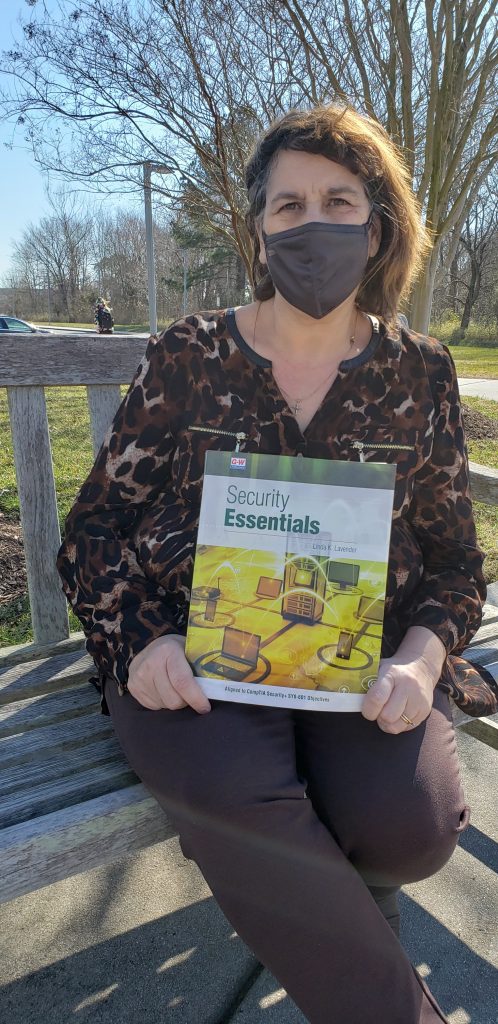Here’s a clue to the subject of Linda Lavender’s textbooks: “Law & Order” is one of her favorite TV shows.
“It’s fun to learn how people are bad,” said Lavender, who teaches cybersecurity at the Advanced Technology Center (ATC). “And it’s fun to learn how to stop them.”

Her new textbook, “Security Essentials,” will become part of ATC’s curriculum next year and her first book, “Principles of Cybersecurity,” is currently used there.
She is the only ATC teacher to have authored a text in Technical and Career Education.
“Linda is an amazing teacher and a national leader in the teaching of cybersecurity,” said Sara Lockett, Director of Technical and Career Education.
Published by Goodheart-Willcox, “Principles of Cybersecurity” is in schools across the country. Several years ago, the publishers asked Lavender what sort of book would help her students most, and she said it would be good to have a cybersecurity text tailored to high school students. They didn’t have a book like that, but an editor for the company soon called her back to ask if she’d consider authoring one.
She had never written a book before, but she knew she was bringing something special to the table.
“The fact that I teach high school matters,” she said. “In many cases you have people with technical knowledge who can write a decent book. But if you’re not applying it to the real world and listening to students’ questions and their needs, you’re missing something. I didn’t make assumptions, because I knew my students may not know some business terms, like ‘compliance’ or ‘cyberwarfare.’ ”
Lavender was a programmer for local IT companies before she started her Virginia Beach City Public Schools career in 1997. She’s been at ATC since it opened about 20 years ago. To make sure she was giving her students the best education, she earned a master’s degree in cybersecurity at St. Leo University.
She incorporates real-life security scenarios in her books and in her classroom discussions.
Students analyze and give their opinion on issues like how the government decides whether to disclose security risks. They consider whether informing the public outweighs the risk of hackers exploiting the information.
Lavender also teaches cybersecurity at Tidewater Community College, and her latest book is suitable for college as well as high school. Her past students have gone on to work in cybersecurity for the Navy, IBM and the National Security Agency.
Many more students will soon become cybersecurity analysts, cryptologists and chief information security officers – helping companies and government agencies protect everything from confidential customer information to national security.
“A lot of the problems we’re having with cybersecurity in the world today are from programmers who weren’t taught how to build secure systems,” Lavender said. “The training we have at ATC is so valuable. It’s important that our students study real and relevant examples, and come up with solutions.”
And it helps that their teacher loves a good mystery.
“I like puzzles,” Lavender said. “I like solving things.”
